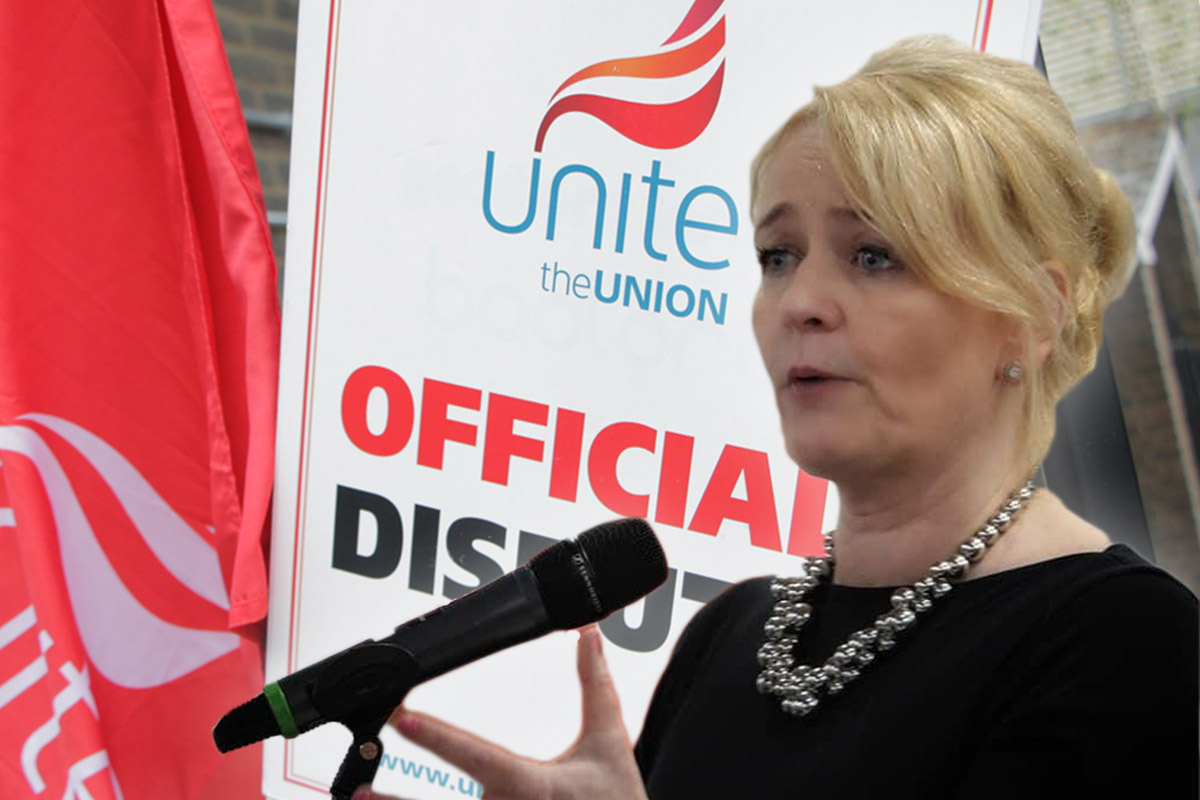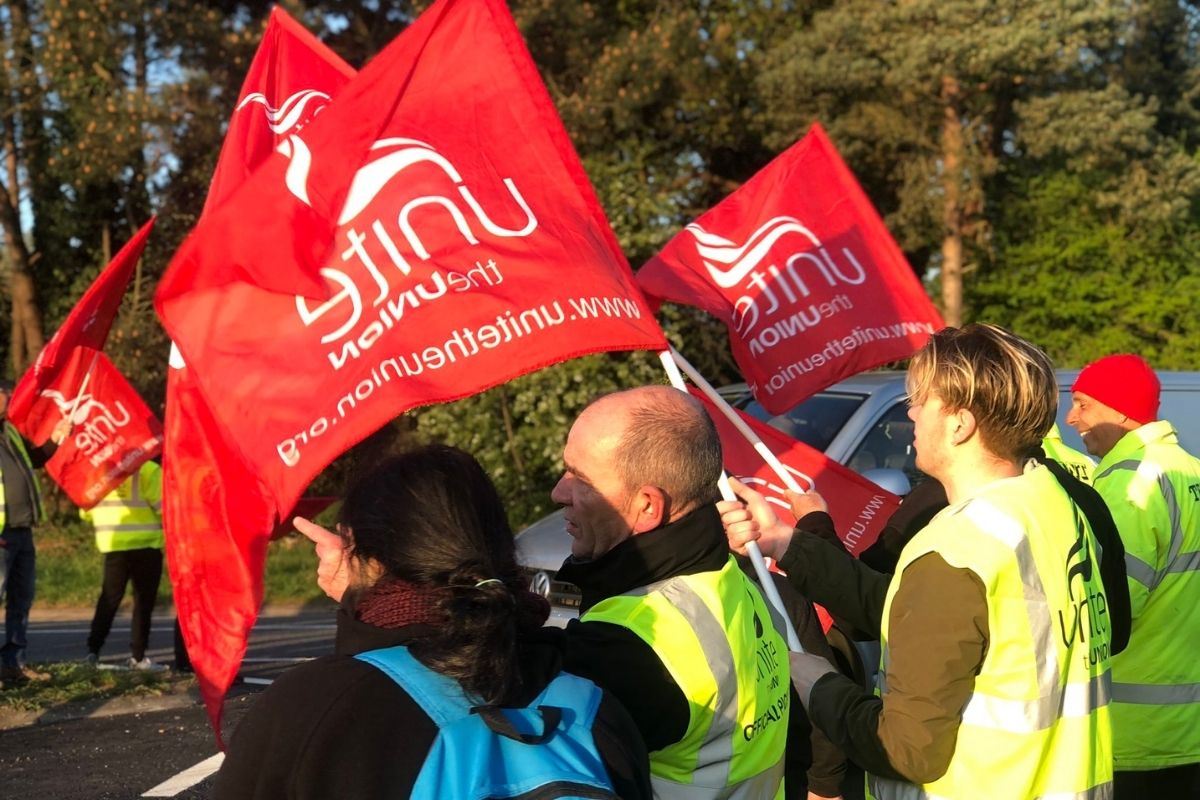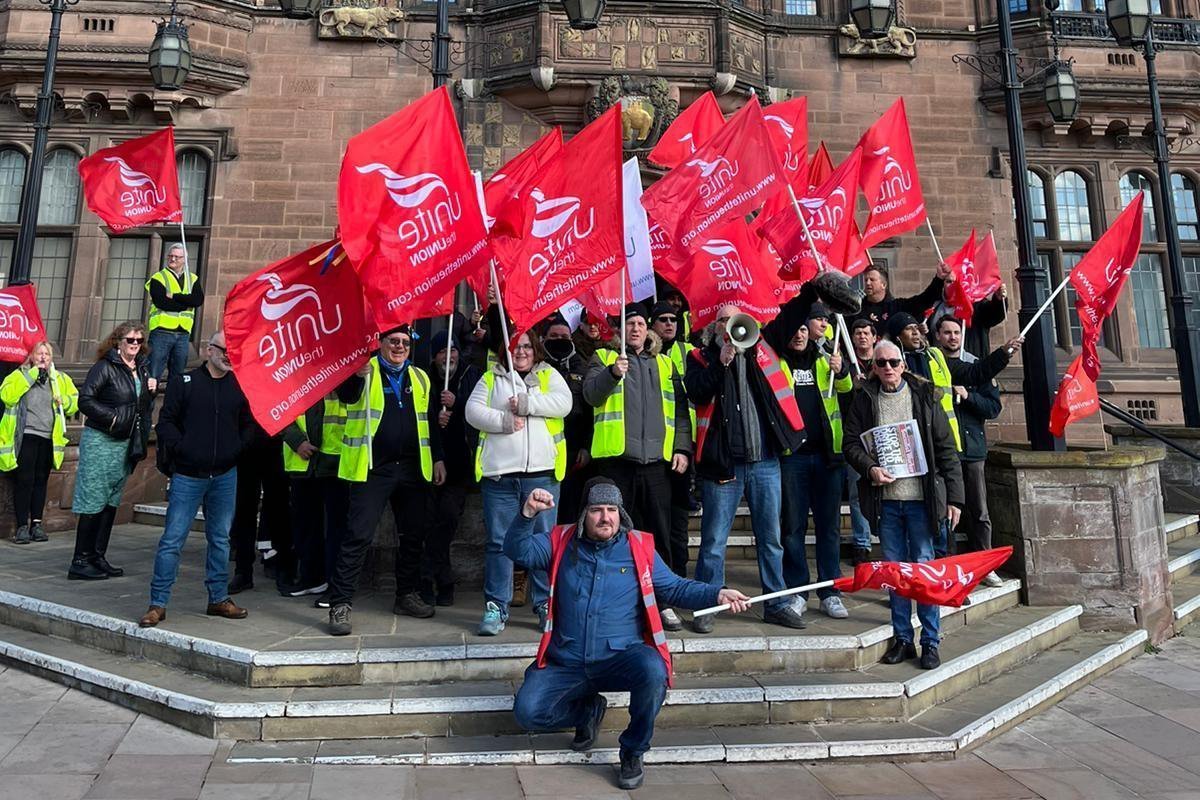The last year has seen a wave of strikes across industry, with a number of important victories recorded by Unite members under Sharon Graham’s leadership. The lesson is clear: to win, workers need unity, militant action, and socialist policies.
Just over a year has passed since members of Unite the Union elected left-winger Sharon Graham as their general secretary.
This period has coincided with a surge of industrial action sweeping across Britain. And Unite has played a big part in this rising tide of strikes and struggles.
Now, with new prime minister Liz Truss at the helm, workers are set to face an even more hostile government, prepared to make workers pay for the crisis of the capitalist system.
Already over the past year, Unite’s members have mobilised and come out fighting in over 450 disputes. And this militant activity shows no signs of slowing, regardless of the threats made by the Tories and bosses.
“There could be hundreds of disputes involving tens of thousands of workers over the coming months,” Graham stated recently, “if employers continue to offer real-terms wage cuts presented as pay increases.”
The disputes that Unite has been engaged in provide valuable experience for the whole labour movement, including important lessons that can help prepare organised workers for the struggles ahead.
Militancy pays

One such strike is that of bin lorry drivers at Coventry City Council, who were engaged in six months of continuous industrial action, which ended in victory in July.
After five weeks of striking on selected days, the strike was escalated to an all-out strike from the end of January, showing the determination of the workers – and the confidence they had that the union would back them.
In February, a strike committee was also established. This allowed the workers themselves to decide on the most effective action.
This met weekly to plan the strikers’ actions. This included picketing arrangements, as well as leafleting to inform local residents about the dispute, in order to cut across the council’s propaganda and mobilise support for the strike.
On 9 March, council bosses suspended Pete Randle, the drivers’ shop steward, in a blatant act of trade union victimisation.
But the strikers and the union immediately got behind their comrade, and the following day there was a defiant rally outside the Council House, with slogans such as “an injury to one is an injury to all” put forward.
This showed the local community that the workers were determined to continue their struggle, whilst also exposing the council as bullish bosses, drawing further support for the strike.
In the end, the drivers won an inflation-busting pay rise of 12.9%, along with Christmas bonuses, and disciplinary charges against shop steward Pete Randle were dropped.
Elsewhere, refuse workers organised in Unite at Thurrock council have also won their dispute.
And many other Unite members have seen victory on a similarly militant basis, including: outsourced hospital workers in London, in their struggle to be brought back in-house; bus drivers in Manchester and British Airways workers at Heathrow Airport, fighting against ‘fire and rehire’; and pallet workers at CHEP, following a heroic and historic 21-week-long strike.
Coordinated action

Another important dispute was won on 19 August by bus drivers at Arriva North West, who secured an above-inflation pay rise. This was after 29 days of continuous strike action, coordinated between Unite and GMB members.
Workers across eleven depots and – importantly – across both unions came together in solidarity, fighting back against the bosses’ divide-and-rule tactics. This shows where workers’ strength lies: through organisation, unity, and coordinated action.
Unite has also announced fresh strikes at the port of Felixstowe, starting on 13 September, following on from action taken last month. This time, however, Felixstowe workers will be coinciding their action with a strike at the Liverpool docks.
Bosses will always resort to all manner of dirty tricks to break strikes: diverting operations, hiring scab labour, and so on. But coordinated action thwarts the bosses in this respect, drawing more workers into struggle, and potentially leading to a complete stoppage.
And it is through such collective action that workers realise their common interests and become stronger.
With this in mind, it is welcome that Unite, along with other unions, are proposing motions at this year’s TUC Congress that call for coordinated action.
Workers’ economy
These inspiring industrial struggles have provided invaluable experience to a whole new generation of workers. It is militant methods such as these – not clever negotiations or stunts – that hit the bosses where it hurts, and which deliver the goods.
The most crucial lesson, however, is that a political struggle is also required: to turn isolated battles against individual bosses into a general class war on the whole bosses’ system.
Unite’s new campaign ‘Unite for a Workers’ Economy’ appears to recognise this need.
There is no Westminster hero coming to save us. Decades of empty promises & petty parliamentary grudges have left working people fighting for scraps while bosses enjoy record profits.
We must – Unite for a Workers’ Economy. @UniteEconomy #UWE2020 #Crawley pic.twitter.com/ZJdy9MiRoh
— Sharon Graham (@UniteSharon) August 22, 2022
“Our economy isn’t working for workers, only for corporate Britain and its rich backers,” Graham has said.
“It’s time for workers and communities to fight back. It’s time for us to build a movement for real change based on a unity of the workplace with local communities – popular working-class power.”
To achieve a true workers’ economy, the trade union movement must fight for a genuine socialist programme: the expropriation of the banks and top monopolies, without compensation, to be run under the democratic control of the working class, as part of a socialist plan of production.
This is what workers and youth must fight for to establish genuine popular working-class power.






